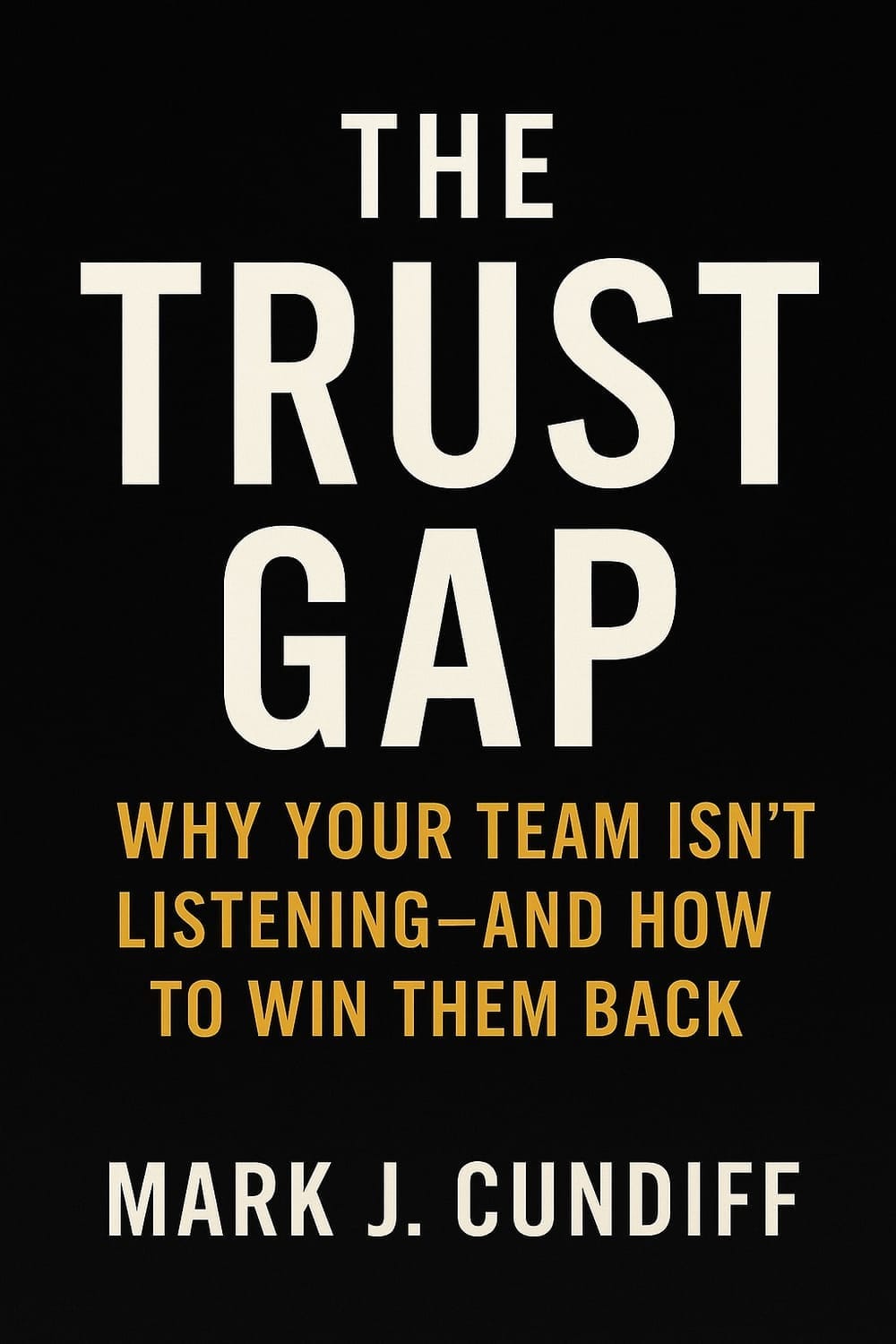9 Reasons Why Humble Leaders Make Great Leaders
The Bridge Builder
Rebecca began her role as VP of Product Development with confidence. Her resume boasted two advanced degrees and fifteen years of experience. She was determined to turn around the struggling division she inherited.
In her first week, she called a department meeting. "I've reviewed our situation. We'll start a new approach on Monday."
While sharing her vision, she saw people glance sideways and shift in their seats. She dismissed it as resistance to change—something she thought she could manage with strong leadership.
Three months later, Rebecca sat alone in her office, staring at the quarterly numbers. Product deadlines were missed. Team attrition was at an all-time high. The ambitious targets she set seemed further away than when she started.
That evening, she found James, a senior engineer with over a decade at the company, working late. On impulse, she pulled up a chair.
"James, may I ask you something?" Her voice was softer. "What's really happening here?"
James studied her, gauging her sincerity. "You had great ideas," he finally said, "but you never asked about what we learned from years of trial and error. There are challenges with our supply chain and customer needs that aren't obvious from the outside."
Their conversation lasted for hours. For the first time since joining, Rebecca mostly listened.
The next morning, she called another meeting. This time, she started differently.
"I made a mistake," she said. "I thought I had all the answers because of my past success. But I realize now that the knowledge in this room far exceeds what I brought. I want to restart—this time, with me listening and learning from you."
The change didn’t happen overnight, but it was clear. Rebecca set up regular forums for team members to share their insights. She admitted when she didn’t have answers and celebrated others' successes.
She understood her role wasn’t to be the smartest in the room. Instead, it was to connect great ideas and help everyone shine.
Six months later, the division launched its best product in five years. This new product blended Rebecca's fresh ideas with the team's strong expertise.
Rebecca’s famous response to praise was: "My greatest accomplishment wasn’t what I made—it was learning to let the existing brilliance shine."
Why is humility important in leadership? Rebecca's story shows that true leadership strength starts when we acknowledge our limitations. Humility connects isolated talent into collective brilliance.
In recent years, research has shown that humility in leadership is vital. It is often mistaken for weakness. However, studies reveal that it is a significant source of strength and one of the most important qualities a leader can have.
Humble leaders, with their quiet confidence, often outperform their more arrogant counterparts. This article looks at why humility is important for leaders. It shows how humility can boost team performance, job satisfaction, and company culture.
1. The Power of Humility in Leadership
Humility in leadership is often misunderstood. Some see it as a weakness, but it is truly a source of strength. Humble leaders admit their limitations and welcome new ideas. This openness leads to better decision-making and outcomes for the team and organization.
"The challenge of leadership is to be strong, but not rude; be kind, but not weak; be bold, but not a bully; be thoughtful, but not lazy; be humble, but not timid; be proud, but not arrogant; have humor, but without folly."– Jim Rohn
2. Humble Leadership and Team Performance
Humble leaders boost team morale and engagement. They value their team members' contributions. This creates a respectful environment for everyone. This leads to higher job satisfaction and a more positive company culture. Humble leadership isn’t about being the smartest; it’s about recognizing the best ideas from the team.
"Leadership is a series of behaviors rather than a role for heroes."– Margaret Wheatley
3. Growth Mindset: A Cornerstone of Humble Leadership
Humble leaders embrace a growth mindset. They face challenges and learn from failures. This mindset is crucial for personal growth and continuous improvement for both the leader and the team. Leaders like Satya Nadella, CEO of Microsoft, show that a growth mindset with humility leads to remarkable success.
"The higher you want to climb, the more you need leadership. The greater the impact you want to make, the greater your influence needs to be. The best leaders are always growing, always grounded."– John C. Maxwell
4. Building Trust and Respect Through Approachability
Approachable leaders build trust and respect. Humble leaders promote open dialogue, making team members comfortable sharing ideas and feedback. This open communication strengthens relationships and enhances overall team performance.
"People may admire your strengths, but they connect with your vulnerability."– Craig Groeschel
"Pride makes us artificial and humility makes us real."– Thomas Merton
5. Surrounding Oneself with Great Leaders
Humble leaders know the value of surrounding themselves with great talent. They appreciate others’ strengths and encourage diverse perspectives. This fosters a culture of excellence and creates a positive environment for innovation and growth.
"Humility is the noble choice to forgo your status, deploy your resources, or use your influence for the good of others before yourself."– John Dickson
6. Empowering Team Members for Better Outcomes
Empowering team members is key to humble leadership. Humble leaders support their teams by giving feedback and development chances. This helps teams achieve their full potential. This leads to better job performance, increased engagement, and better outcomes for the organization.
"A leader’s success is measured by the success of those they lead."– Tony Dungy
7. Valuing the Contributions of Others
Humble leaders listen actively and value their team members' contributions. They invest in their teams' growth. They know that the organization's success relies on this development and their satisfaction. This method builds respect and teamwork. As a result, it boosts employee engagement and job satisfaction.
"Leaders who don’t listen will eventually be surrounded by people who have nothing to say."– Andy Stanley
8. Humble Leaders as Servant Leaders
Servant leadership extends from humility. Humble leaders prioritize others' needs, creating a culture of selflessness and compassion. This style builds trust, encourages collaboration, and inspires loyalty among team members. Leaders like Nelson Mandela and Satya Nadella exemplify the power of servant leadership.
"Servant leadership is all about making the goals clear and then rolling your sleeves up and doing whatever it takes to help people win."– Ken Blanchard
"Leadership is not about being in charge. It is about taking care of those in your charge."– Simon Sinek
9. Self-Awareness and Emotional Intelligence
Self-awareness is key for humble leaders. By understanding their strengths, weaknesses, and values, they can lead with authenticity. This self-awareness enhances emotional intelligence, enabling them to empathize, resolve conflicts, and build stronger team relationships.
"The best leaders don’t think less of themselves; they just think of themselves less often."– Patrick Lencioni
Humble Leadership in Action: Case Studies
Satya Nadella’s leadership at Microsoft is a prime example of humility. He built a culture of humility, transparency, and improvement. This change turned Microsoft into a successful company. Dr. Franziska Frank explains why humility matters in human resource management and leadership.
The Role of Humility in Continuous Improvement
Humble leaders commit to continuous improvement. They create a culture of transparency and learning where mistakes become growth opportunities. This mindset drives personal growth and fosters innovation and better decision-making.
Fostering a Culture of Humility in Organizations
Integrating humility into leadership is essential for achieving organizational goals.
Ways to encourage humility are:
Promoting open dialogue.
Offering regular feedback.
Fostering a growth mindset.
These practices boost employee engagement, improve relationships, and strengthen profits.
The Benefits of Humility in Leadership
Humility in leadership brings many benefits. It leads to higher employee engagement, improved client relationships, and better morale. Humble leaders can succeed by valuing contributions and building trust. This approach also helps their organizations thrive.
"Humility is the true key to success. Successful people lose their way at times. They often embrace and overindulge from the fruits of success—ego. Humility halts this arrogance and self-indulging trap. Humble people share the credit and wealth, remaining focused and hungry to continue the journey of success."– Rick Pitino
Conclusion
Humility in leadership is a powerful force for growth, trust, and collaboration. It’s not about downplaying abilities but valuing others’ strengths.
Leaders like Satya Nadella and Dr. Franziska Frank show that humility is key to leadership success. Leaders who embrace humility can empower their teams. This mindset helps drive improvement and leads to better results for their organizations.
Join over 3,900 Fellow Leaders reading The Learning To Lead Newsletter each week!
Recent Articles

Join over 4,000 Fellow Leaders reading The Learning To Lead Newsletter each week!
©2025 Learning To Lead | Helping Good Leaders Become Great Leaders


